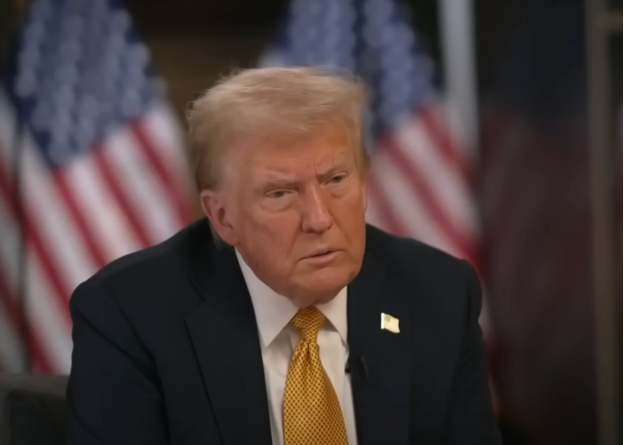Breaking News
Trumps Vows To End Birthright Citizenship, But Can He Really Do So?

Source: YouTube
President-elect Donald Trump recently revived his controversial plan to end birthright citizenship, a policy guaranteed by the 14th Amendment of the U.S. Constitution. The policy currently grants automatic citizenship to children born on U.S. soil, regardless of their parents’ immigration status. Trump’s proposal has reignited debates about immigration, constitutional law, and the potential consequences for millions of Americans.
Birthright citizenship, enshrined in the 14th Amendment, has been a cornerstone of American immigration policy since 1868. It ensures that all individuals born in the United States are granted citizenship, providing equal rights and protections under the law. Proponents argue that the policy upholds fundamental American values of equality and inclusion, while critics claim it incentivizes illegal immigration and exploits U.S. resources.
Trump’s Argument Against Birthright Citizenship
Trump has long criticized birthright citizenship as a “magnet” for illegal immigration. His proposal aims to limit automatic citizenship to children born to U.S. citizens and legal residents. By issuing an executive order, Trump plans to challenge the interpretation of the 14th Amendment that courts have upheld for over a century.
In his announcement, Trump stated, “We will end birthright citizenship for children of illegal aliens. It’s about time we put Americans first.” Supporters of this plan believe it will deter illegal immigration and curb abuses of the system, such as “birth tourism,” where foreign nationals travel to the U.S. to give birth and secure citizenship for their children.
Legal and Constitutional Challenges
Experts widely agree that ending birthright citizenship would face significant legal hurdles. The 14th Amendment’s Citizenship Clause explicitly states, “All persons born or naturalized in the United States… are citizens of the United States.” Any changes to this interpretation would likely require a constitutional amendment, not an executive order.
Trump’s plan is expected to face immediate challenges in federal courts, with opponents arguing that such an action would undermine constitutional protections. Legal scholars caution that altering birthright citizenship could create a generation of stateless individuals, further complicating immigration issues.
Implications for Immigrants and Society
Ending birthright citizenship could have far-reaching effects on immigrant communities and the broader U.S. population.
- Impact on Families: Millions of families could face uncertainty regarding their children’s legal status. Mixed-status households, where some members are citizens and others are not, may see increased vulnerabilities.
- Economic Consequences: Critics argue that limiting birthright citizenship could hurt the economy by reducing the number of future taxpayers and workers.
- Immigration Enforcement: The policy change would likely place additional burdens on the already strained immigration system, requiring stricter documentation and enforcement mechanisms.
Why Donald Trump Personally Opposes Birthright Citizenship
Donald Trump has been vocal about his disdain for birthright citizenship since his 2016 campaign. He views the policy as a loophole that undermines national security and sovereignty. Trump frequently cites anecdotes about “anchor babies” — a term he uses to describe children born in the U.S. to non-citizens, allegedly allowing their parents to exploit citizenship benefits.
In his rhetoric, Trump frames birthright citizenship as a drain on American resources, arguing that it incentivizes illegal immigration and places undue financial burdens on taxpayers. He has also tied the policy to broader critiques of the U.S. immigration system, portraying it as outdated and unfit for addressing modern challenges.
By targeting birthright citizenship, Trump aligns with his broader “America First” agenda, which emphasizes prioritizing citizens over immigrants and limiting pathways to citizenship for undocumented individuals.
Public Opinion and Political Divide
Birthright citizenship remains a deeply polarizing issue. A 2024 Pew Research survey found that 57% of Americans support maintaining the policy, while 38% favor restricting it. Supporters of Trump’s plan are predominantly conservative voters who view it as a necessary step toward immigration reform.
Democratic leaders and immigrant advocacy groups strongly oppose the proposal, calling it unconstitutional and harmful to vulnerable populations. They argue that birthright citizenship reflects America’s values as a nation of immigrants and a land of opportunity.
What’s your take on birthright citizenship? Do you agree that it’s time to let go of this citizenship rule? Tell us what you think!

1 Comment
Interesting that you would leave out the balance of the 14th amendment “and subject to the jurisdiction thereof”. This implies someone legally in the United States – a citizen or someone in the United States with a legal visa or permission to be here. Someone who broke in to the Country has no legal right to be here.